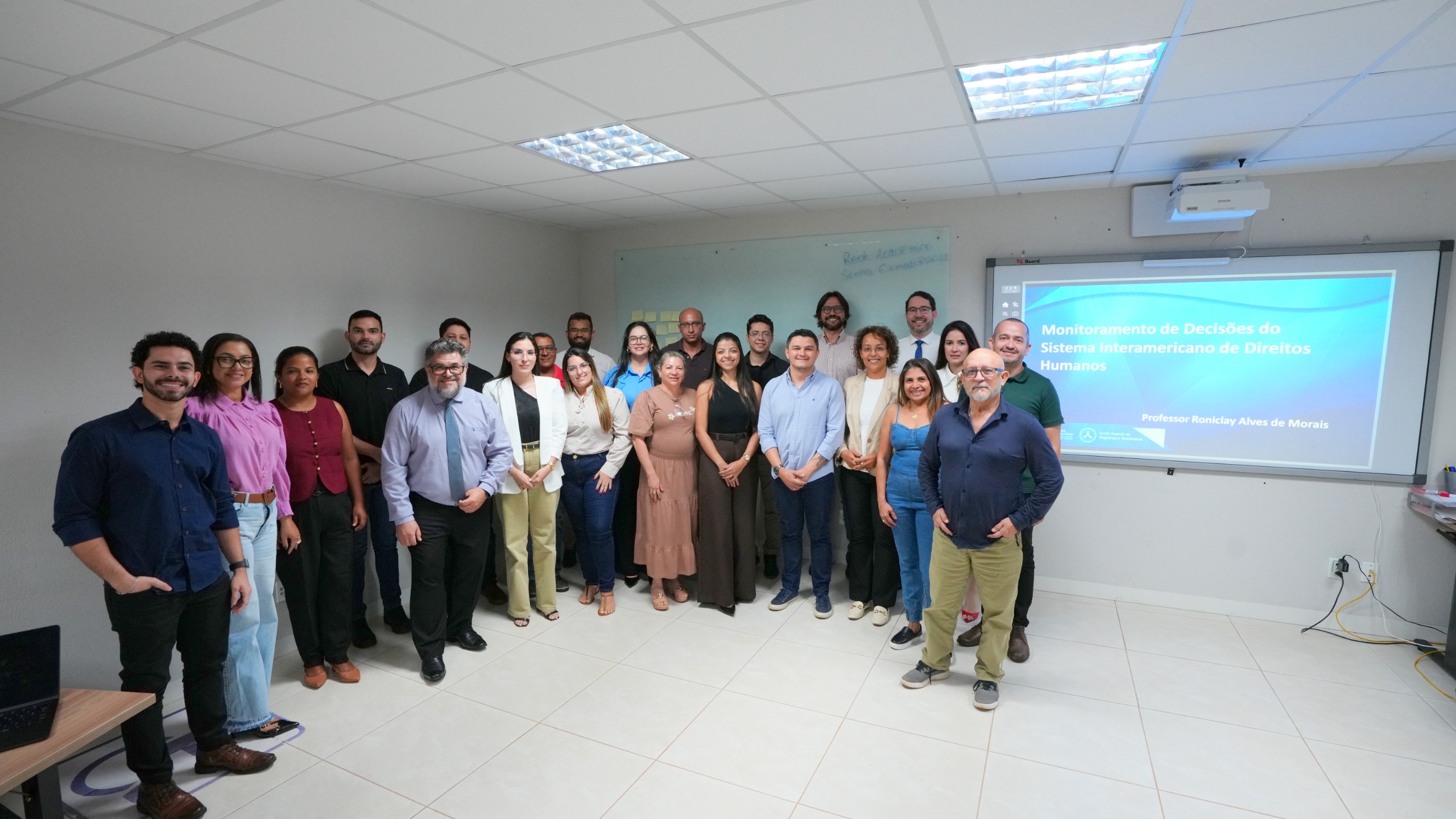
On Monday (August 5th), the course on “Monitoring Decisions of the Inter-American Human Rights System” began at the Superior School of the Judges of the State of Tocantins (Esmat). The training is aimed at magistrates and civil servers of the Judiciary of the state of Tocantins.
With a workload of 20 hours and a practical focus, the initiative, requested by the Monitoring and Inspection Unit that operates within the structure of the Prison System Monitoring and Inspection Group (GMF/TO), offers an immersion in the topics of conventionality control, inter-American jurisprudence, and institutional coordination strategies for the fulfillment of the obligations assumed by the Brazilian State within the scope of the Inter-American Human Rights System (SIDH).
In this first class of the in-person stage, Judge Roniclay Alves de Morais gave a presentation on the structure and oversight mechanisms of the Inter-American Commission and Court. The next activities will be conducted remotely and they will feature the participation of Professor Valério de Oliveira Mazzuoli, a national reference in International Human Rights Law.
Lara Leão Ayres, legal advisor, shared her thoughts on the training experience:
“Through research techniques in official databases and analysis of inter-American jurisprudence, we are understanding how the decisions of the IACHR and the Inter-American Court affect the Brazilian legal system. The course provides a broader perspective on the Law and social issues of the country, strengthening our ability to interpret and apply international standards of protection”.
The course, coordinated by Judge José Eustáquio Melo Júnior, runs until August 14th, with the aim of analyzing the functioning of the Inter-American Human Rights System, with an emphasis on mechanisms for monitoring and enforcing the decisions of the Inter-American Commission and Court, promoting critical reflection on its application in Brazil and strategies for strengthening its effectiveness in the Judiciary.




